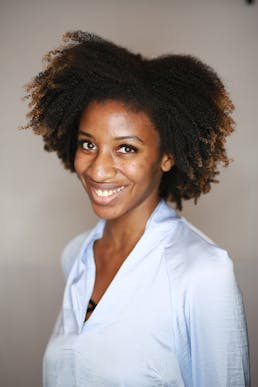Sadie Jay - Technical Interviews for Bootcamp Grads
Season 6, Episode 4 | August 30, 2022In today's episode, Dan and Bekah talk to Sadie about technical interviewing after bootcamp. She shares her tips for landing interviews, prepping, and interviewing your interviewers.

Sadie Jay
Sadie is a Front-end Developer and bootcamp alum. In 2016, Sadie started her journey into tech with web design courses. Along the way, she graduated with a Masters specializing in Web Design and Online Communication, taught yoga, searched for cheap flights at a travel startup, volunteered as a writer and proofreader for various non-profits, and contributed to a number of open source projects. Outside of coding and writing, Sadie can be found petting her cat Maxie, hanging out with her mom, or looking up the next vegan restaurant to check out.
Show Notes:
This week Bekah and Dan sat down with Sadie a frontend developer for a federal agency, to chat about her experience navigating the interview process and how she found success after giving tech a second shot. She shares tips on how to avoid burnout both during the interview process and while you're working in tech.
Links:
Sponsor Virtual Coffee!
Your support is incredibly valuable to us. Direct financial support will help us to continue serving the Virtual Coffee community.
Please visit our sponsorship page on GitHub for more information - you can even sponsor an episode of the podcast!
Virtual Coffee:
- Virtual Coffee: virtualcoffee.io
- Podcast Contact: podcast@virtualcoffee.io
- Bekah: dev.to/bekahhw, Twitter: https://twitter.com/bekahhw, Instagram: bekahhw
- Dan: dtott.com, Twitter: @danieltott
The Virtual Coffee Podcast is produced by Dan Ott and Bekah Hawrot Weigel and edited by Dan Ott.